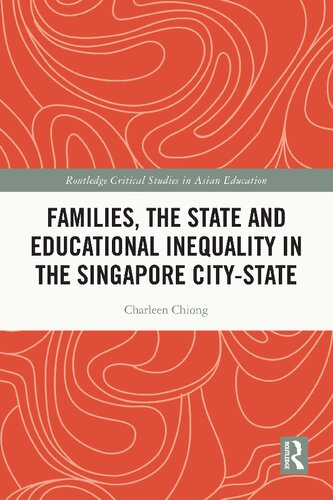

Most ebook files are in PDF format, so you can easily read them using various software such as Foxit Reader or directly on the Google Chrome browser.
Some ebook files are released by publishers in other formats such as .awz, .mobi, .epub, .fb2, etc. You may need to install specific software to read these formats on mobile/PC, such as Calibre.
Please read the tutorial at this link: https://ebookbell.com/faq
We offer FREE conversion to the popular formats you request; however, this may take some time. Therefore, right after payment, please email us, and we will try to provide the service as quickly as possible.
For some exceptional file formats or broken links (if any), please refrain from opening any disputes. Instead, email us first, and we will try to assist within a maximum of 6 hours.
EbookBell Team

0.0
0 reviewsFocusing on Singapore’s education system from an equity perspective, Chiong’s book describes the often unheard perspectives of socio-economically disadvantaged families in Singapore. The performance of Singaporean students on international education benchmarking tests has been widely recognised. Relatively less known is how socio-economically disadvantaged families negotiate Singapore’s highly competitive, stratifying and meritocratic system. Yet, families’ perspectives can provide crucial insight in understanding how policy is ‘lived’ and experienced, and its effects on people’s lives.
Drawing on 72 interviews with 12 families, this book traces the development of surprisingly close, collaborative relations between the state, schools and families on Singapore’s socio-economic margins. It demonstrates that in the 'strong' state of Singapore, families’ dependency on schools and the state facilitates the internalisation of individual and familial responsibility for future success. However, these very processes can injure, and perpetuate inequality.
The analysis presented in this book has relevance in other contexts, in times where advanced capitalist states face growing inequalities and challenging relationships between institutional authority and the wider populace. As socio-economic and educational inequalities widen, this book asks timely questions and provides recommendations on what a more equitable state-citizen compact might look like.
The book will appeal to researchers and students who are interested in the fields of the sociology and politics of education, social policy, and Asian culture and society.